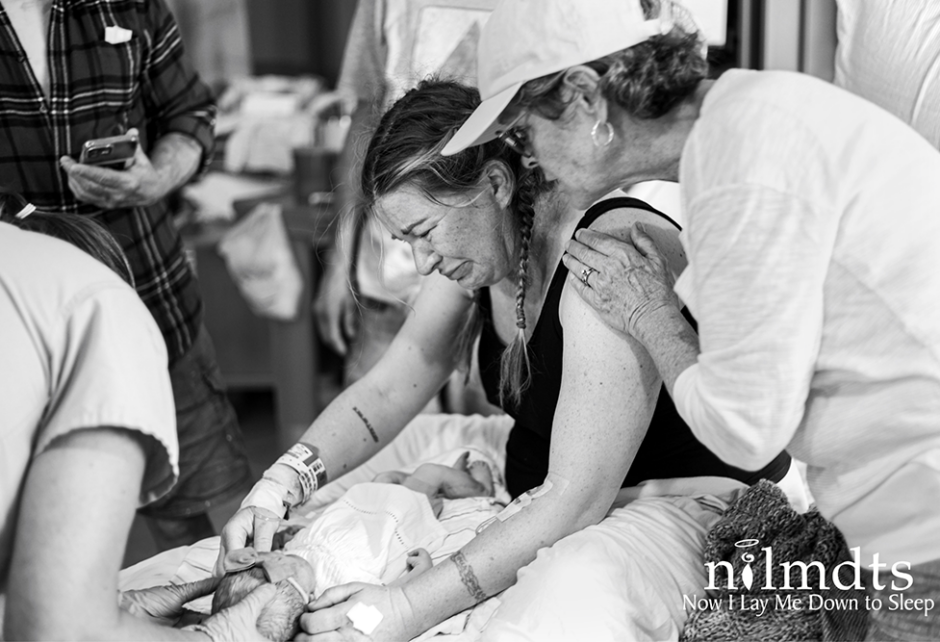
Home Birth Vs. Hospital Birth
Written by James Kicinski-McCoy
Photography by Jodie Snyder Morel of Dannijo photographed by Kisha Bari
Congratulations! You’re pregnant. Chances are when finding out the big news there were a wide range of emotions that came with it including excitement, elation, and nerves. Becoming a parent is a wonderful thing, but along with the baby carriage comes a lot of important decision making, including how and where to give birth. We thought we’d break down two popular options of both at-home and in-hospital births by listing out some of the potential pros and cons, so you can make the right choice for you and your growing family.
Home Birth
A home birth means just that—delivering your baby outside of a hospital, and in your own home. Choosing this route still requires the assistance of a qualified professional, whether it be a CPM, certified professional midwife, a CNP, certified nurse midwife, a registered or legally licensed midwife, or an obstetrician. Many expecting mothers choose to birth at home for a more intimate experience and to have more control over their bodies and their birth plan. Not all women are able to or recommended to have a home birth, especially if it is determined a high-risk pregnancy due to a number of factors, so make sure to check with your healthcare provider to see if it’s an option for you.
Pros:
– You are able to labor and deliver in the comfort of your own home.
– There are no restrictions on how many family members or friends that can be present.
– You can eat or drink as you wish prior to delivery.
– You are able to walk around freely without monitors or IVs.
– When birthing at home, you are able to have a natural birth without intervention.
– You can choose the delivery position that’s right for you.
– There are little to no time constraints for labor and delivery.
– You may be able to avoid unnecessary medical interventions common in hospital births.
– Low risk of outside exposure to viruses or bacteria.
– After delivery, you can rest in your own bed with your baby.
– You have optional in-home follow-up care and lactation support available.
– You will not be disturbed by doctors or nurses throughout the night.
– Lower delivery costs.
Cons:
-Most insurance policies will not cover home birth expenses.
-There is usually no pain relief or epidural available if birthing at home.
-Birth is messy. You may be responsible for clean up and keeping things sanitary, especially if using a birth pool.
-There are potential risks if your midwife or caregiver is unsure of what to do in an emergency situation.
-You may need to be transported to the hospital if complications arise.
-In case of emergency, there will be a delay in you and your baby receiving care, while in transit to the nearest hospital.
-If immediate care is needed, there is a higher risk of injury or death.
-You are responsible for recording yours and your baby’s vitals throughout the day and night, postpartum.
-You will need to arrange for your own postpartum care.
-You will need to file you’re infant’s birth certificate.
Hospital Birth
Some people feel more comfortable in a hospital setting, knowing they are surrounded by medical professionals in the event of an emergency. Others can’t bare the thought of delivering a baby without pain medication to help them through it. At the same time, hospitals, especially larger ones, can seem impersonal, intimidating, and uncomfortable. Find a hospital has an updated, relaxing maternity wing with warm, soothing lights and rooms, and all the medical necessities at hand. Take a tour ahead of time, so that you’re familiar and comfortable with your decision.
Pros:
-When admitted to the hospital, you’ll be placed in a hospital bed with fetal monitoring, IVs, and a transducer to measure contractions to make sure everything is running smoothly from start to finish.
-Depending on your medical coverage, your entire birth may be covered by insurance.
-Pain medication is readily available for those who desire assistance through delivery.
-It is absolutely possible to achieve a natural birth in a hospital setting.
-Most hospitals allow you to use a midwife and/or doula throughout labor and delivery.
-You have assistance from trained nurses to help care for your baby, while you heal and rest after giving birth.
-There is on-site lactation help.
-For those who do not wish to breastfeed, hospitals supply formula for baby during your stay and enough for the first few days after returning home.
-If complications should arise, you have immediate medical assistance with the most advanced technology.
Cons:
-Your food and fluid intake will be limited to ice chips.
-Hospitals often set a time limit on how long they will allow a woman to labor before using intervention.
-Hospitals have a high C-section rate.
-Not all hospitals allow or can accommodate the desire for a water birth.
-If intervention is determined, doctors may administer Pitocin (a medication to help speed up contractions), which some view as “rushing” the body’s natural process.
-Privacy is minimal, as doctors and nurses are walking in constantly to check statuses, take vitals, etc.
-You may be separated from your baby throughout your stay due to bathing, screenings, and vitals.
-Hospitals have strict policies, protocols, and procedures that they must follow, which means you will, too.
-High hospital costs if uninsured.
Share this story



